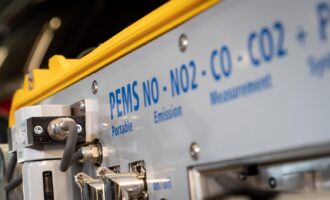ATIEL announces major changes to ACEA Oil Sequences conformance activities
By Aaron Stone
A fundamental flaw in Europe’s ACEA Oil Sequences has been its reliance on companies to self-monitor performance claims in relation to the lubricant quality standards. While most possess the necessary integrity or technical skill to accurately assert performance, a three-year review of the existing process by ATIEL has determined a need to address vulnerability in the system. The technical association recently announced noteworthy changes to the EELQMS conformance procedure.
ATIEL has partnered with F+L Week 2018 to deliver a training workshop to educate lube marketers and answer any questions about the new system, to avoid potential problems for their license. F+L Week is Asia’s premier fuel and lubricant industry conference attracting the foremost companies from throughout Asia, including China, ACEA Oil Sequence’s largest market. Kuwait Petroleum Research & Technology’s Technical Manager Adri van de Ven will lead the ATIEL Post-Conference Workshop entitled “Developing Engine Lubricants to Meet the Requirements of the ACEA European Oil Sequences.” The ATIEL workshop will be held on March 9, 2018 starting at 2 pm at the Four Seasons Hotel Macao, Cotai Strip.
The following article provides further detail on the significant ATIEL announcement and implications for companies involved.
ACEA Oil Sequences have helped define engine lubricant quality requirements for light and heavy-duty vehicles in Europe since 1996. The impact these specifications have had on lifting automotive lubricant standards is undeniable, though historically there have been vulnerabilities in the system, confirmed then ATIEL President Peter Tjan while speaking at the UEIL Annual Meeting last October in Bologna, Italy. Tjan retired as ATIEL president at the end of 2017.
Most notably, ATIEL does not physically approve engine oils, merely outlining standards for oil companies or lubricant manufacturers who have signed the European Engine Lubricants Quality Management System (EELQMS) Marketers’ Letter of Conformance (LoC) to make performance claims against.
This self-assessment relies heavily on the rectitude of companies involved, perhaps placing an unreasonable level of trust in some performance claims. In the past, there have been no checks or balances on ACEA Oil Sequence compliance.
This is all set to change. ATIEL has announced sweeping amendments to the EELQMS conformance procedure which includes the establishment of an independent service company, SAIL, to strengthen product compliance. Tjan advises the changes are off the back of a comprehensive review of ACEA Oil Sequence claimants’ performance.
ATIEL undertook three successive years of quality surveys, including independent laboratory testing, to test if claims being made by individual companies were justified. The European technical association’s efforts focused primarily on passenger car motor oils, with a preliminary evaluation of ATIEL members to ensure compliance, before extending the review to signatories of the EELQMS LoC.

A variety of performance issues were identified within individual companies, though “reassuringly those cases were limited and involved only minor non-compliance,” Tjan says. A more prevalent issue was structural non-compliance — inconsistencies attributed to poor understanding of the system or how to blend a product to a particular standard. A variety of changes have been implemented as a result of the quality surveys to improve compliance, says Tjan.
In individual cases, ATIEL has undertaken a direct engagement with companies exhibiting performance issues to determine corrective action. For the most part “the response has been positive with companies taking immediate corrective action,” says Tjan. In the case of structural issues, ATIEL has engaged in the provision of training and educational materials for LoC registrants, including publications and webinars, to assist in raising the level of operation.
In conjunction with the aforementioned changes “what was also clear is the rules of policing needed an upgrade,” says Tjan. ATIEL has published its compliance policy which essentially describes what happens when a product is found to be non-compliant. Measures range from preliminary educational assistance to a more extreme blacklisting process for lubricant marketers.
Submission of an LoC implies a commitment to develop and manufacture engine lubricants to the standards described in the EELQMS. However, performance claims from companies that are not LoC signatories yet claim to satisfy ACEA Oil Sequence standards are widespread. ATIEL has unveiled a new quality trademark, to be used exclusively by LoC signatories on labels and documentation, as part of an effort to segregate approved lubricants from impostors. Non-LoC signatories have no right to the quality trademark.
While ATIEL affirms the 500 quality surveys undertaken were extremely valuable, to be more influential they need to be intensified, with ongoing product surveys and improved resourcing. Belgium limited company SAIL was incorporated on July 1, 2017 and has been contracted to ATIEL to manage administrative, financial and management services in support of ATIEL’s product compliance and Letter of Conformance activities.
On behalf of ATIEL, SAIL now operates the registration system for signatories of the LoC, licenses the use of the EELQMS trademark and logo and manage the compliance monitoring programme — analyzing products and evaluating results. Every LoC signatory will face at least one product being analyzed every year, says Tjan. Companies which fail to achieve a required standard will have to respond within 30 days with an explanation and how it intends to resolve the problems. SAIL will then follow the process to final resolution. It will also be responsible for aggregating total information and will publish annual statistics on performance trends, common problems and will continue to enhance training programmes to address recurring issues.
Conscious of burdening ATIEL members with added costs or having to subsidize a system that serves the entire industry,the EUR 975 (USD1,156) annual registration fee from each company signing a Letter of Conformance will ensure that the programme becomes self-sustaining. There is no intention to generate a profit from these activities, says Tjan.
Existing LoC signatories were notified of the changes in early September 2017 along-side a requirement to renew their existing LoC. The quality trademark became available from 1 November 2017 . SAIL has received more than 200 registrations to date, confirms Tjan, a third of which stem from outside Europe including China, Taiwan and South America. While the organization is pleased with the results to date, Tjan says the education process is ongoing. In cooperation with F&L Asia Ltd., a post-conference workshop on “Developing Engine Lubricants to Meet the Requirements of the ACEA European Oil Sequences” will be held at the Four Seasons Hotel, Macao at Cotai Strip, specifically to target Chinese oil marketers. The workshop on 9 March 2018 will be conducted by Kuwait Petroleum Research & Technology’s Adri van de Ven, who is technical manager of product development.
Clearly, ATIEL’s new compliance procedure is a major step forward for Europe’s ACEA Oil Sequences, although there are still gaps that will require attention in the future. Heavy-duty will only be included from the compliance process from 2018 and the focus, for now, is solely on small packs, not bulk, says Tjan, observing that API has recently incorporated bulk packs in its process with some interesting results. The current specification was also limited in geographical scope — predominantly within the EU including Switzerland and Norway. From 2018, however, the scope is being expanded to global coverage. With so many vehicles shipped off to foreign markets, the question of ensuring quality in these faraway locations is an ongoing concern, he adds.
For more information on SAIL, go to https://www.sail-europe.eu/.








